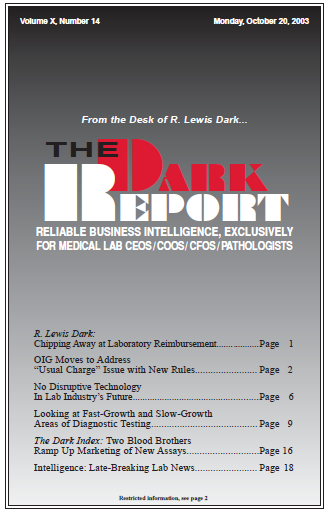Here’s a reminder that corporate fraud didn’t bypass healthcare. Last week Albert Bergonzi, former Executive Vice President of McKesson/HBOC, pled guilty to violations of securities laws. He admitted that he had “cooked the books” around the time of HBOC’s acquisition by McKesson. In a court filing, Borgzoni declared “we falsely inflated quarterly soft- ware sales …
“October 20, 2003 Intelligence: Late Breaking Lab News” Read More »
To access this post, you must purchase The Dark Report.


